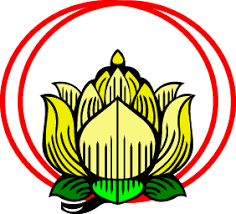From the Announcement of James Ford, UU Buddhist Fellowship, January 9, 2023
Convocation is a biennial opportunity for UU Buddhists to sit together, compare notes on our sangha experiences, study and play together. We have been holding convocations since 2005. For each convocation we invite a guest teacher to offer dharma talks and teaching. In addition, there will be times of meditation, workshops, and informal meals and breaks where you can get to know other attendees.
The 2023 Convocation will begin on Thursday, April 27th, with a “grab and go” dinner available at 6 pm, and will end on Sunday, April 30 at 11:30 am. The DeKoven Center, is lovely retreat center on the shores of Lake Michigan.
You can register as 1) an online zoom participant, 2) a commuter participant with meals, or 3) an in-person participant, including lodging. There will also be a public talk on Saturday, April 29.
Registration will continue until 4/12/2023. A limited number of scholarships are available. If you are in need of a scholarship in order to attend, please email jzimmerman@uuma.org before registering.
There are several major airports nearby (including O’Hare and Milwaukee), and Racine is also served by Amtrak trains. We will be arranging carpooling for the retreat, connecting those who can provide rides with those in need of ground transportation.
Comments by David Loy and the theme of the Convocation ~ Dr. David Robert Loy is a professor of Buddhist and comparative philosophy and Zen teacher in the Sanbo Zen tradition of Japanese Zen Buddhism. Loy is one of the founding members of the new Rocky Mountain Ecodharma Retreat Center, near Boulder, Colorado. He is the author of many books, including Ecodharma: Buddhist Teachings for the Ecological Crisis.
For our weekend together, Loy writes: “Traditional Buddhist teachings help us wake up individually and realize our interdependence with others. Today we need to wake up collectively in another way. We need to wake up to what is one of the greatest dangers that humanity has ever encountered.
>> Buddhism can help us understand and respond appropriately to the climate emergency driven ecological crisis. Neither the Buddha nor Asian Buddhist traditions have faced the complex set of challenges of the twenty-first century. Yet Buddhism includes many teachings that are relevant to our situation.
>> There are profound parallels between our individual human struggles which Buddhism addressed and our ecological predicament today. The parallels suggest that the eco-crisis is as much a spiritual challenge as a technological and economic one. In both cases, at the root of the problem is our illusion of separation: that “I” am separate from others, and that we are separate from the natural world.
>> Perhaps the most important thing that Buddhism has to offer today is a new version of the bodhisattva — or ecosattva — path, which can respond to collective and institutionalized versions of greed, ill will and delusion (the three poisons). All this suggests, the ecological challenge is also a challenge to the ways we understand and practice Buddhism.”
#######+++++++#######+++++++#######
See Also : Morgantown Buddhist Meditation


{ 1 comment… read it below or add one }
Discovering Our Unshakable Response: The EcoSattva Training
The climate crisis is upon us. If you have not personally experienced searing heat waves, extreme weather, or historic drought or flooding this year, you probably know someone who has. Meanwhile, stories of climate disruption are — all too slowly — gaining prominence in mainstream news outlets.
With its desperate impacts on already marginalized human communities, the rise in our planet’s temperature is one of many dramatic ecological shifts underway. We bear witness to an unintended and tragic loss in global species diversity, the web of Earthly life eons in the making. It is as if countless gems in Indra’s Net are going dark.
Is it any wonder that our human hearts shake with grief, anger, and fear? Still, even amid so much loss, endless ecological wealth and potential remains. The path of the engaged practitioner is to endeavor regardless, committed yet free from clinging. No matter the outcome, there is always good work to be done. The path of compassionate action is a journey without end.
Such a journey requires both clarity of purpose as well as companionship. In support of your intentions and necessary community, we invite you to join us in the EcoSattva Training. By turning towards our difficult reality, supported by mindfulness, wisdom, practices, and connection, we will discover the roots of our loving response. We can become steadfast, unshakable in our engaged practice.
>>> ‘The Dharma is a terrific lens through which to view ecoactivism. This has helped me think about ways to help others who are either overwhelmed or think no action can be sufficiently effective and have given up.’ ~ ~ ~ EcoSattva Training Participant
Source: https://oneearthsangha.org/articles/pgm-post/ecosattva-training-v5/